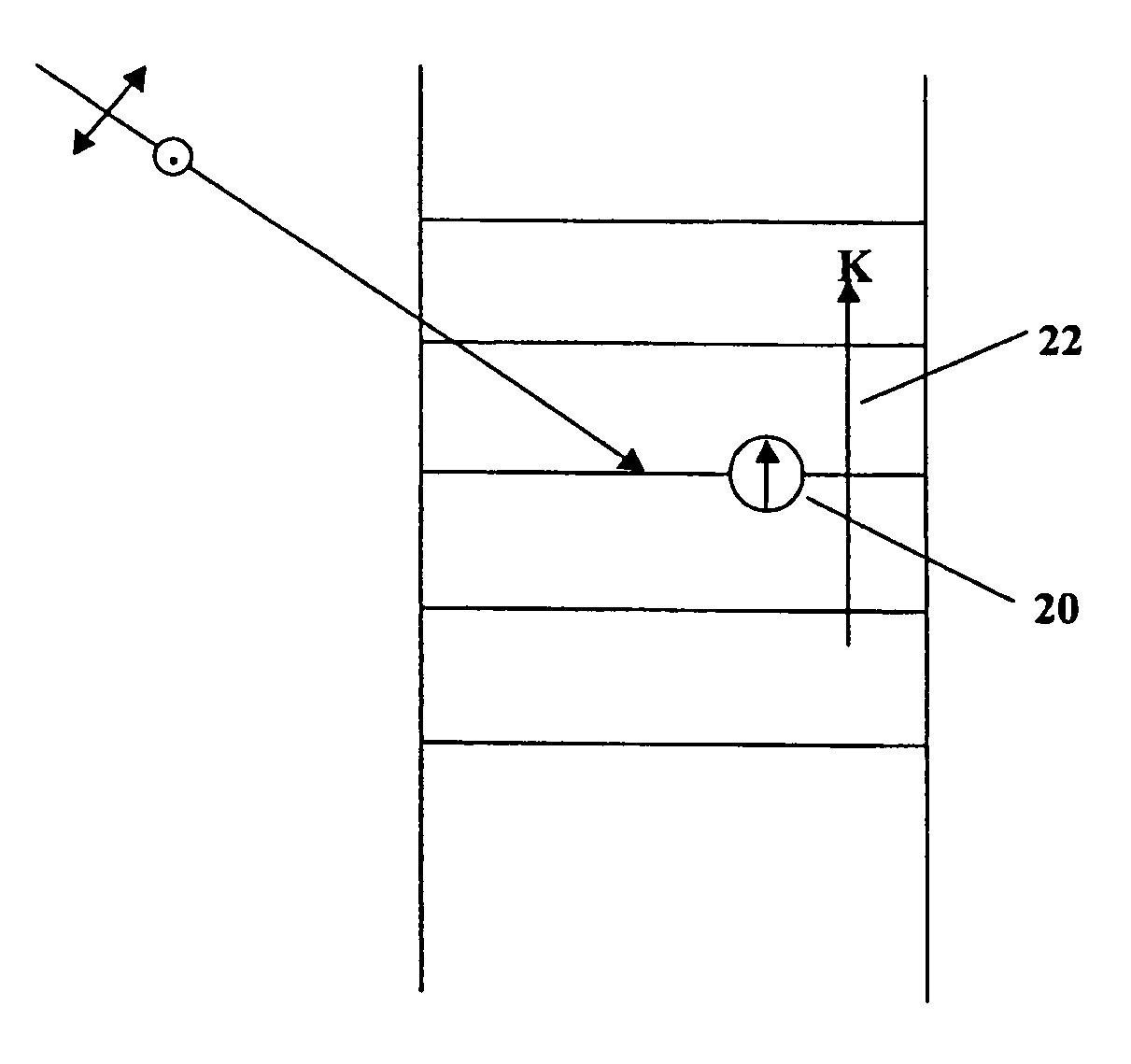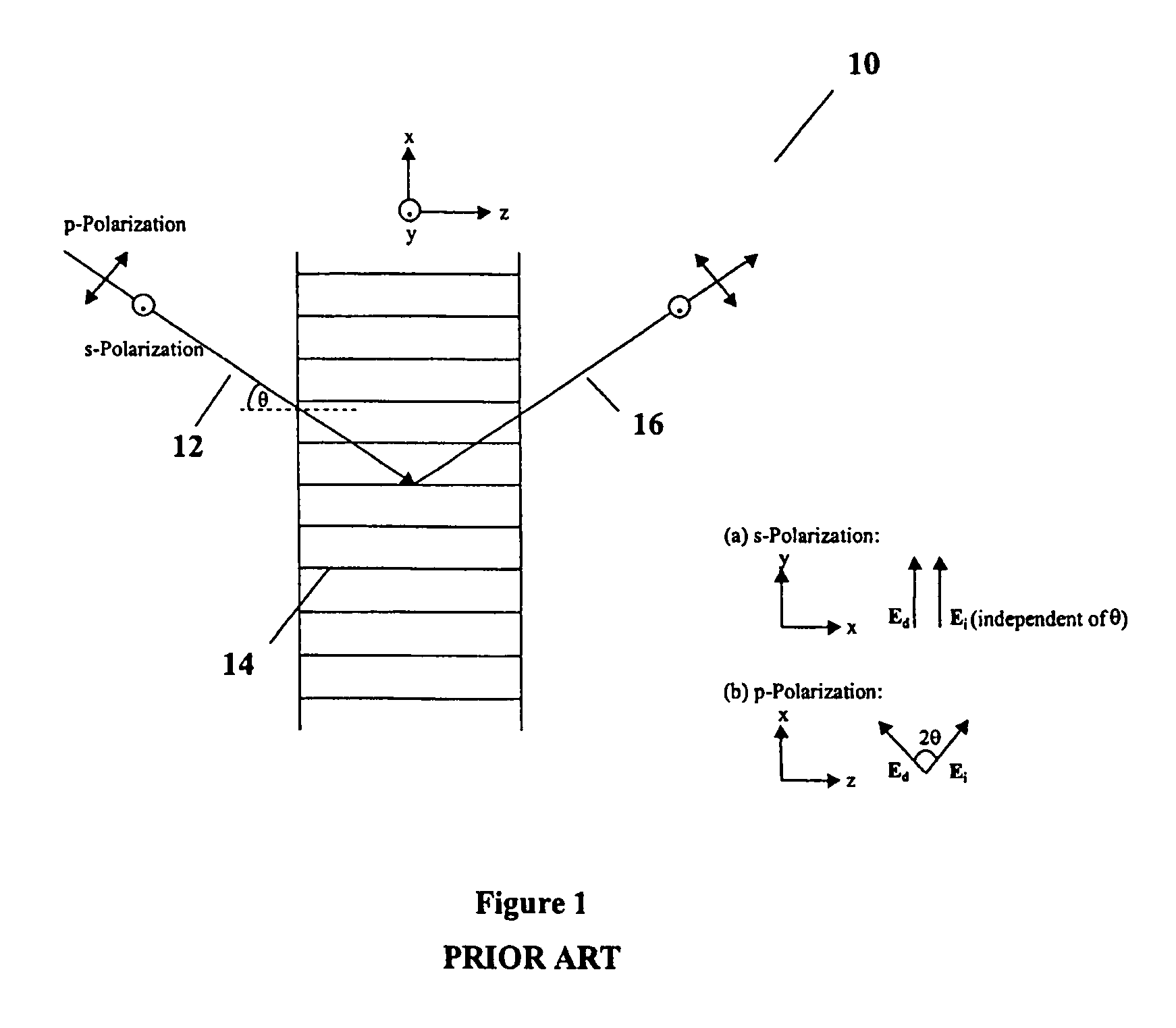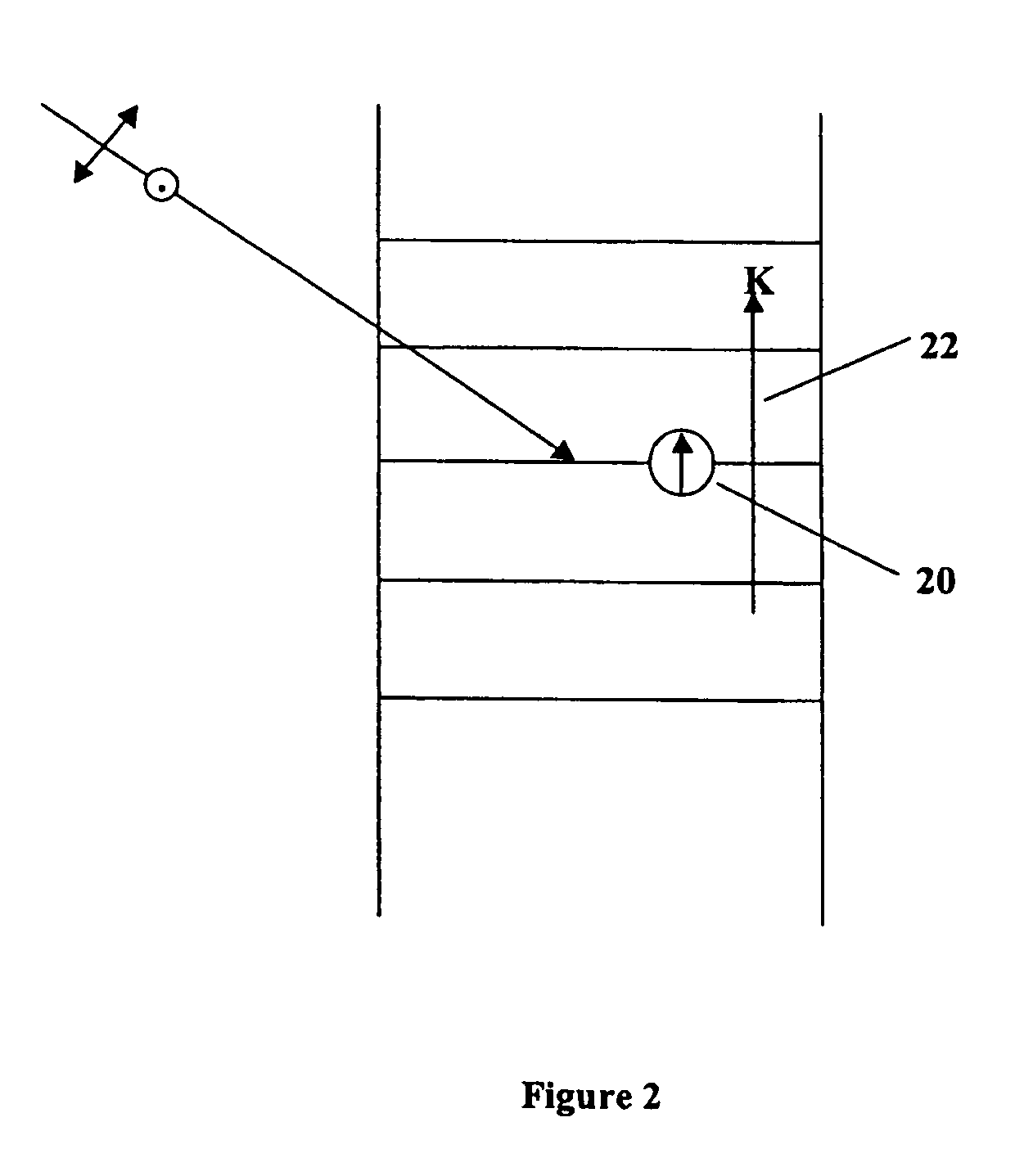Controlling haze in holographically polymerized polymer dispersed liquid crystal optical elements
a technology of liquid crystal optical elements and polymer dispersed polymer, which is applied in the direction of optics, instruments, optical elements, etc., can solve the problems of increasing the cost of complex off-axis optical systems, and increasing the cost of complex optical systems. , to achieve the effect of reducing haze, reducing haze, and reducing haz
- Summary
- Abstract
- Description
- Claims
- Application Information
AI Technical Summary
Benefits of technology
Problems solved by technology
Method used
Image
Examples
first embodiment
[0091]In the present invention, a system and method for controlling index modulation through nematic director control, is described. For given LC birefringence and volume fraction, the index modulation can be maximized by maximizing the birefringence of the LC droplets. This is achieved by distorting the droplets and aligning the symmetry axes of each droplet in the same direction, which matches the polarization direction of the incident light. It is possible to do this by applying external stimuli that shape and orient the droplets as they are formed in the phase separation process. Techniques for achieving this using a magnetic field or an externally applied stress are disclosed in U.S. Pat. No. 5,942,157 to Sutherland et al., which is incorporated herein by reference in its entirety.
[0092]This first embodiment describes a method for distorting the droplets and aligning the symmetry axes of each droplet in the same direction using an electric field that is compatible with subseque...
second embodiment
[0095]In the present invention, a system is described for controlling index modulation through fringe stability and / or contrast control. Achieving excellent fringe stability and contrast in the interferogram applied to the HPDLC material optimizes index modulation in holography. Fringe contrast is degraded by internal Fresnel reflections in the cell containing the HPDLC material. These reflections also lead to the formation of cross gratings as the main hologram is recorded, which contribute to haze and cosmetic defects and decrease index modulation. The primary source of these reflections is at the interface between the transparent electrode (i.e., indium tin oxide (ITO)) and the pre-polymer LC material. To alleviate this problem, a broad band anti-reflection (AR) coating is incorporated into the transparent electrodes. The term AR coating refers to a substantially transparent multilayer film that is applied to optical systems (e.g., surfaces thereof) to substantially eliminate ref...
third embodiment
[0098]It is understood that the pre-establishment of a loosely gelled network is not limited by the radiation exposure methods described above. Any technique to gently and partially cure the sample so that a loose gel network is established is contemplated by this disclosure. These techniques are known to those in the art of polymer chemistry and may include heat, electron beams, or the presence of other reactants that can be triggered by some external mechanism. The third embodiment describes the formation of a loosely gelled network prior to hologram recording in order to stabilize the system against non-uniform shrinkage as the hologram forms during a subsequent photopolymer chemical reaction.
[0099]Another alternative method commensurate with the scope of the third embodiment comprises loading the pre-polymer PDLC recording medium into a pre-existing loose network, such as an aerogel. An aerogel is a glass or polymer network that consists mostly of air voids that are much larger ...
PUM
| Property | Measurement | Unit |
|---|---|---|
| time | aaaaa | aaaaa |
| haze | aaaaa | aaaaa |
| temperature | aaaaa | aaaaa |
Abstract
Description
Claims
Application Information
 Login to View More
Login to View More - R&D
- Intellectual Property
- Life Sciences
- Materials
- Tech Scout
- Unparalleled Data Quality
- Higher Quality Content
- 60% Fewer Hallucinations
Browse by: Latest US Patents, China's latest patents, Technical Efficacy Thesaurus, Application Domain, Technology Topic, Popular Technical Reports.
© 2025 PatSnap. All rights reserved.Legal|Privacy policy|Modern Slavery Act Transparency Statement|Sitemap|About US| Contact US: help@patsnap.com



